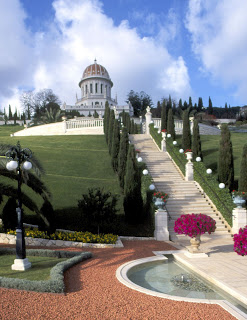Why are we fighting among each other in the name of religion?. The purpose of religion is to unite mankind and establish peace and unity among people of the world. But it is very unfortunate to see people are divide and fight against each other in the name of religion. Just recently, in India, it was Hindhu against Christians in the Orissa state, and Hindhus against Muslims in Kashmir.
Just a few weeks ago, at least 16 people, mostly Christians were murdered, several churches destroyed and nearly 10,000 Christians became homeless in the State of Orissa, India because of religious war between Hindhus and Christians.
According to International Herald Tribune, the missionaries built schools and hospitals, and their work persuaded many Adivasis and ethnic Panas, who belong to a Hindu lower caste, to convert to Christianity. The region turned into a hotbed of communal strife after hardline Hindu groups, who accuse Christian missionaries of converting people under duress or through inducements, arrived half a century ago to counter an expansionist evangelist drive.
There have been so many religious wars during the past several decades and have slowed down the progress of humanity. The wars have disunited people, destroyed communities and brought miseries to millions of people.
Baha'i Gardens in Haifa, Israel
Terraces - Baha'i Garden, Haifa, Israel
In a statement address to the peoples of the world, entitled, The Promise of World Peace, the Supreme Body of the Baha'i Faith, the Universal House of Justice in Haifa, Israel noted," Religious strife, throughout history, has been the cause of innumerable wars and conflicts, a major blight to progress, and is increasingly abhorrent to the people of all faiths and no faith. Followers of all religions must be willing to face the basic questions which this strife raises, and to arrive at clear answers. How are the differences between them to be resolved, both in theory and in practice? The challenge facing the religious leaders of mankind is to contemplate, with hearts filled with the spirit of compassion and a desire for truth, the plight of humanity, and to ask themselves whether they cannot, in humility before their Almighty Creator, submerge their theological differences in a great spirit of mutual forbearance that will enable them to work together for the advancement of human understanding and peace."
Probing deeper into the unity of religions, according to the writings of the Baha'i Faith, "The principle of the unity of religion means that all of the great religious Founders--the Manifestations--have come from God, and that all of the religious systems established by Them are part of a single divine plan directed by God.
In reality, there is only one religion, the religion of God. This one religion is continually evolving, and each particular religious system represents a stage in the evolution of the whole. The Bahá'í Faith represents the current stage in the evolution of religion. To emphasize the idea that all of the teachings and actions of the Manifestation are directed by God and do not originate from natural, human sources, Bahá'u'lláh, the Founder-Prophet of the Baha’i Faith, used the term "revelation" to describe the phenomenon that occurs each time a Manifestation appears. In particular, the writings of the Manifestation represent the infallible Word of God. Because these writings remain long after the earthly life of the Manifestation is finished, they constitute an especially important part of the phenomenon of revelation. So much is this so, that the term "revelation" is sometimes used in a restricted sense to refer to the writings and words of the Manifestation.


Comments